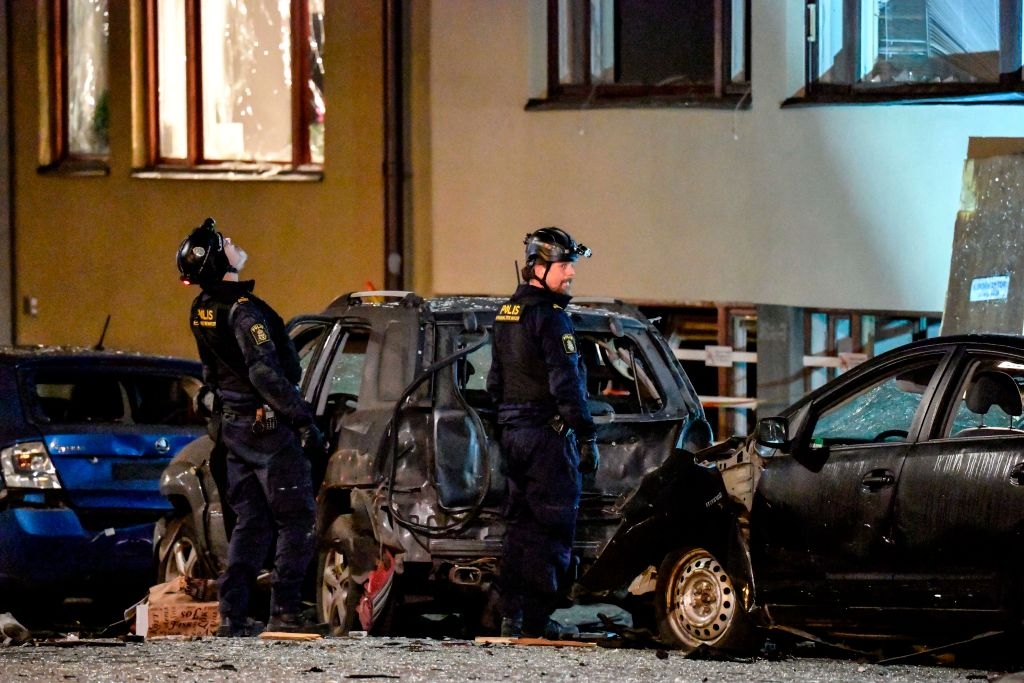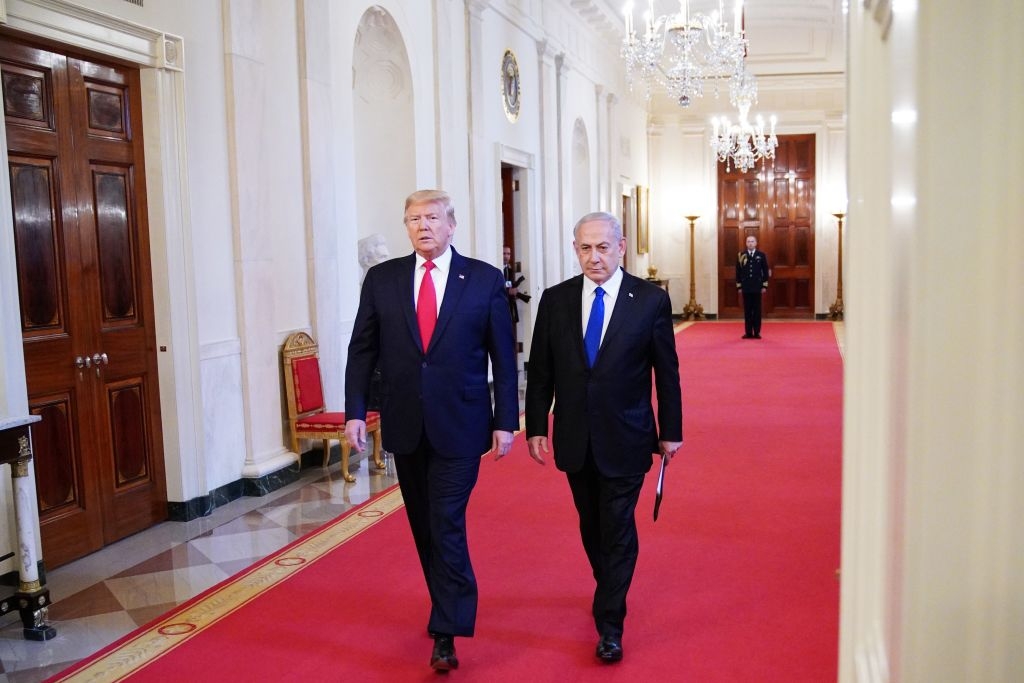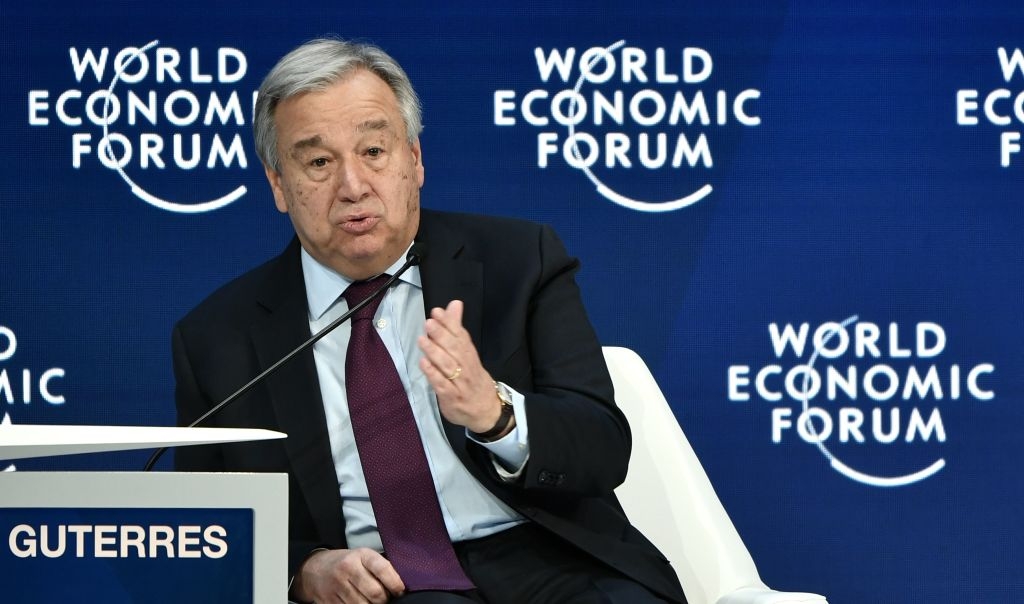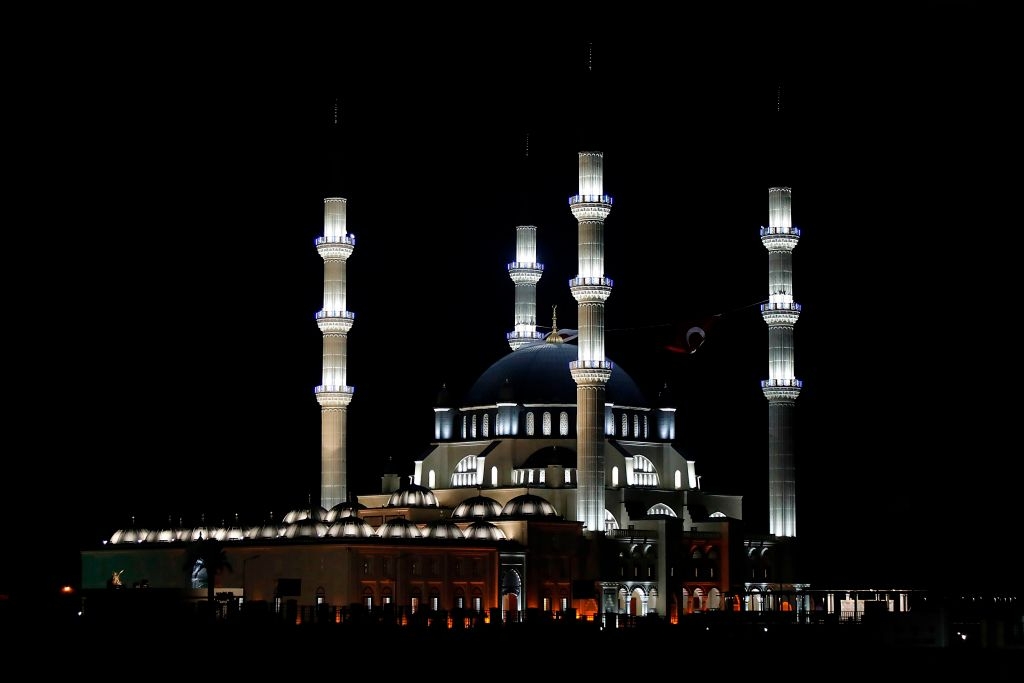In this mailing:
- Judith Bergman: Sweden's Victimized Children
- Naomi Linder Kahn: Speaking Clearly about the 'Deal of the Century'
by Judith Bergman • February 26, 2020 at 5:00 am
"The suspects are also victims in some sense, but this is still something we have to deal with, that children also commit crimes". — Police Chief Carin Götblad, Expressen, February 5, 2020.
Parents are afraid to report the crimes committed by other children against their children... In August 2019, 13-year-old Filip and his family had no other choice than to move from the city of Uppsala after a gang of minors made his life there unbearable. He was abused, robbed and his life was threatened by gangs, with Swedish authorities telling him not to report it to the police as this would make things "worse" for him.
Last year there were 257 reports of explosions -- including attempted explosions -- an increase of 59% compared to 2018, according to SVT Nyheter. Yet, only seven people have been convicted for any of those 257 crimes.
"For the first time now, more crimes -- in absolute terms -- are committed by persons of foreign background than by persons of Swedish origin... The most crime-prone population subgroup are people born [in Sweden] to two foreign-born parents". — Report by Det Goda Samhället ("The Good Society"), summer of 2019.

Recently, children found explosive material hidden in a sandbox in the Sorgenfri elementary school in Malmö, Sweden, according to Sveriges Radio. Last year there were 257 reports of explosions in Sweden -- including attempted explosions -- an increase of 59% compared to 2018, according to SVT Nyheter. Yet, only seven people have been convicted for any of those 257 crimes. Pictured: Police inspect the damage caused by an explosion in central Stockholm on January 13, 2020. (Photo by Anders Wiklund/TT News Agency/AFP via Getty Images)
The number of children who rob other children has increased by 100% in only four years, according to a new study by Swedish police about reported violent crimes in which children under the age of 15 are both the victims and the perpetrators. In 2016, there were 1,178 robberies against children under 18 years of age. In 2019, the number had increased to 2,484. The number of violent crimes where the suspect is a child under 15 years of age has also gone up dramatically: In 2015, there were 6,359 reported violent crimes where the suspect was a child under 15. In 2019, that number had increased to 8,719 reported violent crimes.
The crimes involve "Violence to the head, kicks, gun threats, burning with lighters, threats to kill, threats to bomb the school, stabbings with food knives, bites and children who have been scratched, dragged, thrown and locked up by other children".
by Naomi Linder Kahn • February 26, 2020 at 4:00 am
Israel's and America's upcoming elections are fateful for both countries and will determine who will conduct the negotiations moving forward. If no clear message is conveyed by Israel -- immediately -- negotiations after the elections could take this silence as tacit agreement.
The political situation in the United States is no less crucial a factor. American presidents are elected to protect American interests -- and these often shift. It is therefore important that Israel not do a deal based on oral understandings of how Israel will be at liberty to respond if and when the Palestinians violate the terms of the agreement (right now, oral understandings are all that exist), as we do not know how those oral understandings will be transmitted or accepted by the next US Congress and administration.
There is a world of difference between the approaches of the candidates from the two major US parties... Israel could easily find itself again having traded tangible facts on the ground for intangible, unenforceable promises.
If Trump is re-elected, the version of his plan eventually ratified by Israel will serve as the basis for negotiations. It is therefore crucial that the threats to Israel's security are corrected before Israel embraces the "conceptual maps." If, on the other hand, President Trump is not re-elected, the "Peace to Prosperity" vision may prove to be yet another Oslo Accord -- a dangerous hole into which Israel will fall without a safety net. If Israel were to approve the plan now, essentially agreeing to the potential creation, at the end of four years, of a Palestinian state, the overwhelming temptation is for a future US president to begin the conversation from there, and not necessarily hold the Palestinian side to its obligations -- which is precisely what happened under the Oslo framework.

Israel's and America's upcoming elections are fateful for both countries and will determine who will conduct the negotiations for the "Peace to Prosperity" plan. If no clear message is conveyed by Israel -- immediately -- negotiations after the elections could take this silence as tacit agreement. Pictured: US President Donald Trump and Israeli Prime Minister Benjamin Netanyahu arrive for an announcement of Trump's "Peace to Prosperity" plan in the White House on January 28, 2020. (Photo by Mandel Ngan/AFP via Getty Images)
The publication of the "Peace to Prosperity" plan has created tremendous confusion and uncertainty in both the Israeli and American political environments. Most of those in the business of analyzing and advising on matters concerning Israel and the Middle East have been hesitant to speak about the plan, either because they are afraid to criticize the right-wing leaders headlining the plan (and standing for re-election) or because the plan's implications are too detailed for easy analysis. It is crucial, however, to ensure the region's national security -- for everyone who is able to get up off the sofa and vote.
by Judith Bergman • February 25, 2020 at 5:00 am
The project of multiculturalism in Europe, including the integration of people from the Middle East and Africa, has fared extremely poorly until now and no amount of denial from the UN or the World Economic Forum, including leveling accusations of "hate speech" and "fake news" at its critics can alter that fact.
Many migrants have made it clear that they have no wish either to contribute to, or become part of, the European societies into which they have migrated. Parallel societies... have sprung up all over Western Europe.
In Germany, authorities believe that it will take decades to get rid of the Middle Eastern family crime clans that have spread their criminal activities throughout the country. Sweden also is reeling from the many shootings and explosions that migrant crime gangs are responsible for throughout the country.
None of these grave issues was even hinted at by the UN's and the World Economic Forum's "experts" on migration in their statements on International Migrants Day. Instead, they encouraged states to clamp down on critics in the name of "hate speech". What are they afraid of?

It is unfortunate that top United Nations bureaucrats and the World Economic Forum chose International Migrants Day to propagandize, instead of engaging honestly and openly with the problematic issues that migration has wrought, especially in Europe. Pictured: UN Secretary-General Antonio Guterres speaks at the World Economic Forum annual meeting in Davos, on January 23, 2020. (Photo by Fabrice Coffrini/AFP via Getty Images)
When the UN marked International Migrants Day on December 18, 2019, the theme was "social cohesion." António Vitorino, director general of the UN's International Organization for Migration (IOM) wrote in an op-ed entitled "Social Cohesion: Recognizing Migration is a Benefit that Works for All":
"This year on International Migrants Day, the IOM has chosen to focus on social cohesion, in recognition not just of migrants, but of the communities in which they can and do flourish...
"Too often, when we speak of migration, we debate whether it is good or bad, costs too much or pays out too little... But to view migration as an accounting practice is to reduce it... It is an evolving...yet integral part of our societies, enriching them in multiple, intangible ways...
by Burak Bekdil • February 25, 2020 at 4:00 am
For the Turks, Turkey is the homeland and Cyprus is the "baby homeland."
In January 2018, several thousand Turkish Cypriots marched against what they said was Turkey's unwanted influence that has emboldened hard-right groups to try to silence opposing views.
Erdoğan's government has been generously sending Turkish taxpayers' money to religious foundations, associations, NGOs and Quranic schools in Turkish Cyprus via the Turkish Aid Delegation. Turkey also built a (Sunni Muslim) theology academy at the same time as it ignored local criticism against it.
"There have been mosque constructions in all areas in northern Cyprus, including former Greek Orthodox churches. All that effort has upset Turkish Cypriots." — Yusuf Kanlı, a prominent Turkish Cypriot columnist, to Gatestone Institute, February 18, 2020.

Between 2002 and 2016, the Turkish government built at least 39 new mosques in the Turkish section of Cyprus (pop. 326,000) -- including the Hala Sultan mosque in Nicosia (pictured), which can house a congregation of 3,000. (Photo by Matthieu Clavel/AFP via Getty Images)
A famous tweet by an unknown Turk and shows how pathetically crazy some Turks can get in their never-ending wars with the rest of the world:
"We should bomb Turkish Cyprus to show the world what a psychopathic nation we are. The world should ponder what the crazy Turks would do to the others if they did this to their 'baby'" -- @spleenistanbul
"Turkish Cyprus" here is the breakaway statelet of the Turkish Republic of Northern Cyprus (TRNC), recognized only by Turkey -- also known among the Turks as the "baby homeland." Since Turkey invaded the northern third of the island in 1974 in response to a coup by Greek Cypriots that aimed to annex Cyprus to Greece, the "Cyprus cause" has been emblematic in reflecting Turkey's militarist and nationalist sentiment.
|
|
|
No comments:
Post a Comment